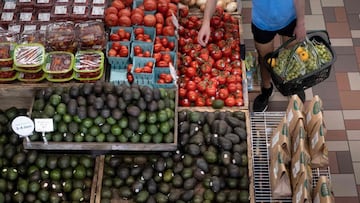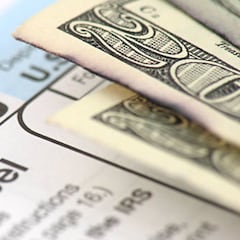How and where can I apply for the Supplemental Nutrition Assistance Program?
The Supplemental Nutrition Assistance Program, or SNAP, benefits, cannot be requested federally and must be applied for in your state.

The Supplemental Nutrition Assistance Program, better known as SNAP, is a federal program to help low-income families and individuals to purchase food using Electronic Benefit Transfer (EBT) cards in authorized stores.
Millions of Americans are enrolled in the program, and these SNAP benefits provide an essential help to families struggling to put food on the table.
READ ALSO: IRS $900 refund: Who is eligible and how to claim
A hunger cliff is here. Millions of people who rely on support from SNAP have seen their benefits drop — in many cases, dramatically. This 4th of July, use FRAC resources to find tools to take action today towards a nation free from hunger. #SNAPMatters https://t.co/stFDWDoCyr pic.twitter.com/xUm4vZfyQw
— Food Research & Action Center (@fractweets) July 3, 2023
How you can apply
The SNAP program is administered by the US Department of Agriculture (USDA) Food and Nutrition Service program, but each state has its own application form. It is advised not to call the USDA or the US Health and Human Services headquarters, as only states handle applications and determine eligibility.
Those who are eligible and want to apply for the SNAP program will need to contact their local SNAP office. The USDA provides a useful national map where applicants can find their state’s local office webpage or phone number, most are toll-free, to sign up and get and Electronic Benefits Transfer (EBT) card.
Contact information for local offices can also be found in the telephone book in the state or local government pages. Applicants should look under “Food Stamps,” “Social Services,” “Human Services,” “Public Assistance,” or some other similar title.
More information can be found on the USAgov website, which has links for further food insecurity help.
READ ALSO: Which grocery stores accept food stamps?
Who is eligible and how much could you receive?
Related stories
Eligibility for SNAP payments is based on three criteria. Claimants must have their maximum gross monthly income at or under 130% of the federal poverty level, which can be found on these Federal Poverty Guidelines Charts. To receive SNAP payments most claimants may not exceed $2,750 in countable resources, or money stored in bank accounts. Claimants must also be available to work.
ICYMI: @GovAbbott and Texas HHSC announce SNAP replacement benefits for Motley County due to severe weather.
— Texas HHSC (@TexasHHSC) July 6, 2023
Learn more, visit: https://t.co/PQmJqMwFBm pic.twitter.com/c1fwJid3Hm
A family of three that has no income would receive the maximum benefit of $740 per month; if it has $600 in net monthly income, it would receive the maximum benefit ($740) minus 30 percent of its net income (30 percent of $600 is $180), or $560.

